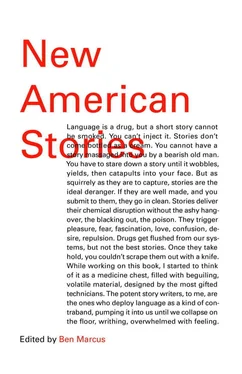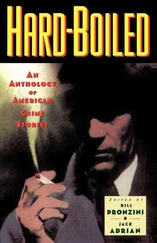There was a name for the outfit she was wearing and I nearly knew it, nearly had it, then it slipped away. But the woman was there, still, in pale sandals, the tunic slit on the sides, with a faint floral design front and back.
The ceiling fan turned slowly in the heavy heat, a thought I didn’t want or need, but there it was, more thought than image, going back years.
Who was the man she was here to see? I was expecting no visitors, didn’t want them, not even my daughters, not right for them to see me here. They were two thousand miles away in any case, and otherwise engaged. Could I place the woman in my immediate presence, face to face across a table in the large open space that would soon be filled with inmates, wives and kids, a guard at an elevated desk, keeping watch?
One thing I knew. The name of her outfit was two words, brief words, and it would make me feel the day was worthwhile, the full week, if I could remember those words. What else was there to do? What else could I think about that might yield a decent measure of completion?
Vietnamese — the words, the tunic, the trousers, the woman.
Then I thought of Sylvan Telfair. He was the inmate she was here to see, a man of worldwide address. They’d met in Paris or Bangkok. They’d stood on a terrace in the evening, sipping wine and speaking French. He was refined and assured and at the same time somewhat reticent, a man to whom she might be attracted, even if she was my idea, my secret silken vision.
I stood watching, thinking.
By the time the words came to me, much later in the day, ao dai, I’d lost all interest in the matter.
—
We were grouped, clustered, massed, paired, men everywhere, living in swarms, filling every space, arrayed across the limits of vision. I liked to think of us as men in Maoist self-correction, perfecting our social being through repetition. We worked, ate and slept in mechanized routine, weekly, daily, hourly, advancing from practice to knowledge. But these were the musings of idle time. Maybe we were just tons of assimilated meat, our collected flesh built into cubicles, containered in dormitories and dining halls, zippered into jumpsuits in five colors, classified, catalogued, this color for that level of offense. The colors struck me as a kind of comic pathos, always there, brightly clashing, jutting, crisscrossing. I tried not to think of us as circus clowns who’d forgotten their face paint.
“You consider her your enemy,” Norman said. “You and her, blood enemies.”
“I don’t think that’s true.”
“It’s only natural. You think she’s using the girls against you. This is what you believe, down deep, whether you admit it or not.”
“I don’t think that’s the case.”
“That has to be the case. She’s attacking you for the mistakes you made in business. What was your business? How did it get you here? I don’t think you ever said.”
“It’s not interesting.”
“We’re not here to be interesting.”
“I ran a company for a man who acquired companies. Information got passed back and forth. Money changed hands. Lawyers, traders, consultants, senior partners.”
“Who was the man?”
“He was my father,” I said.
“What’s his name?”
“He died quietly before the fact.”
“What fact?”
“The fact of my conviction.”
“What’s his name?”
“Walter Bradway.”
“Do I know that name?”
“You know his brother’s name. Howard Bradway.”
“One of the hedge-fund musketeers,” he said.
Norman was searching his memory for visual confirmation. I pictured what he was picturing. He was picturing my uncle Howie, a large ruddy man, bare-chested, in aviator glasses, with a miniature poodle huddled in the crook of his arm. A fairly famous image.
“A family tradition. Is that it?” he said. “Different companies, different cities, different time frames.”
“They believed in right and wrong. The right and wrong of the markets, the portfolios, the insider information.”
“Then it was your turn to join the business. Did you know what you were doing?”
“I was defining myself. That’s what my father said. He said people who have to define themselves belong in the dictionary.”
“Because you strike me as somebody who doesn’t always know what he’s doing.”
“I pretty much knew. I definitely knew.”
I could hear Norman unraveling the improvised cellophane wrap on his little jar of fig spread and then using his finger to rub the stuff across a saltine cracker. On visitors’ days his lawyer smuggled a jar of Dalmatian fig spread into the camp, minus the metal cap. Norman said he liked the name, Dalmatia, Dalmatian, the Balkan history, the Adriatic, the large spotted dog. He liked the idea of having food of that particular name and place, all natural ingredients, and eating it on a standard cafeteria cracker, undercover, a couple of times a week.
He said that his lawyer was a woman and that she concealed the fig spread somewhere on her body. This was a throwaway line, delivered in a monotone and not intended to be believed.
“What’s your philosophy of money?”
“I don’t have one,” I said.
“There was the year I made a shitpile of money. One year in particular. We could be talking, total, easy nine figures. I could feel it adding years to my life. Money makes you live longer. It seeps into the bloodstream, into the veins and capillaries. I talked to my primary-care physician about this. He said he had an inkling I could be right.”
“What about the art on your walls? Make you live longer?”
“I don’t know about the art. Good question, the art.”
“People say great art is immortal. I say there’s something mortal in it. It carries a glimpse of death.”
“All those gorgeous paintings, the shapes and colors. All those dead painters. I don’t know,” he said.
He lifted his hand toward my bunk, up and around, with a splotch of fig preserves on half a cracker. I declined, but thanks. I heard him chewing the cracker and sinking into the sheets. Then I lay waiting for the final remarks of the day.
“She’s talking directly to you. You realize this, using the girls.”
“I don’t think so, not even remotely.”
“In other words this never occurred to you.”
“Everything occurs to me. Some things I reject.”
“What’s her name?”
“Sara Massey.”
“Good and direct. I see her as a strong woman with roots going back a long way. Principles, convictions. Getting revenge for your illegal activities, for the fact you got caught, maybe for joining your father’s business in the first place.”
“How smart I am not to know this. What grief it spares me.” “This sneaky-pretty woman in your words. She’s reminding you what you did. She’s talking to you. Abu Dhabi, Abu Dhabi. Hang Seng, Hong Kong.”
All around us, entombed in cubicles, suspended in time, reliably muted now, men with dental issues, medical issues, marital issues, dietary demands, psychic frailties, sleep-breathing men, the nightly drone of oil-tax schemes, tax-shelter schemes, corporate espionage, corporate bribery, false testimony, Medicare fraud, inheritance fraud, real estate fraud, wire fraud, fraud and conspiracy.
—
They started arriving early, men crowding the common room, some carrying extra folding chairs, snapping them open. There were others standing in the side aisles, a spillover of inmates, guards, kitchen staff, camp officials. I’d managed to squeeze into the fourth row, slightly off-center. The sense of event, news in high clamor, all the convergences of emotional global forces bringing us here in a wave of complex expectation.
A cluster of rain-swept blossoms was fixed to one of the high windows. Spring, more or less, late this year.
Читать дальше










![Женя Джентбаев - neo futura [stories]](/books/692472/zhenya-dzhentbaev-neo-futura-stories-thumb.webp)

